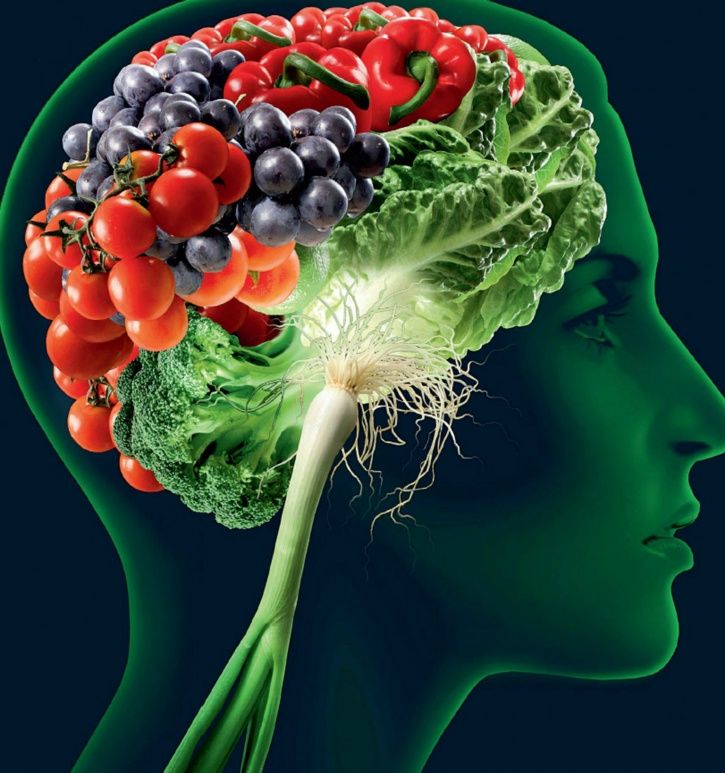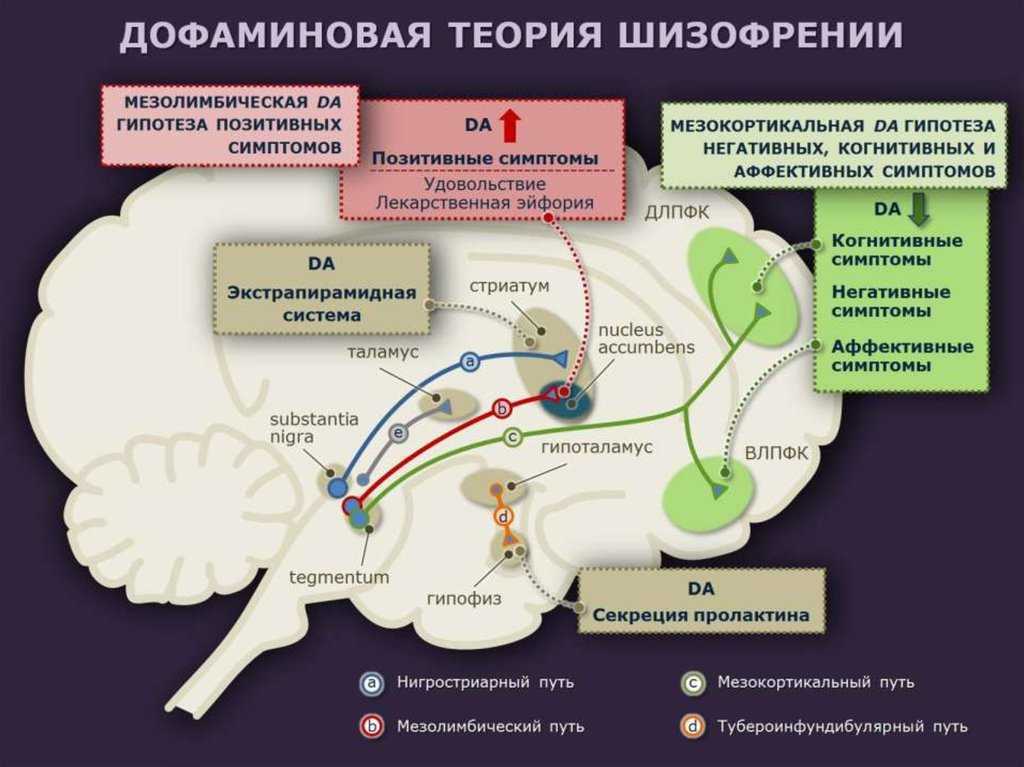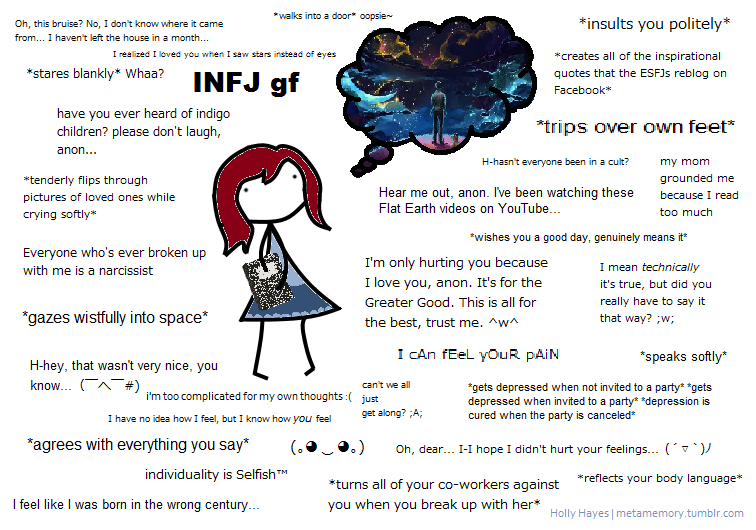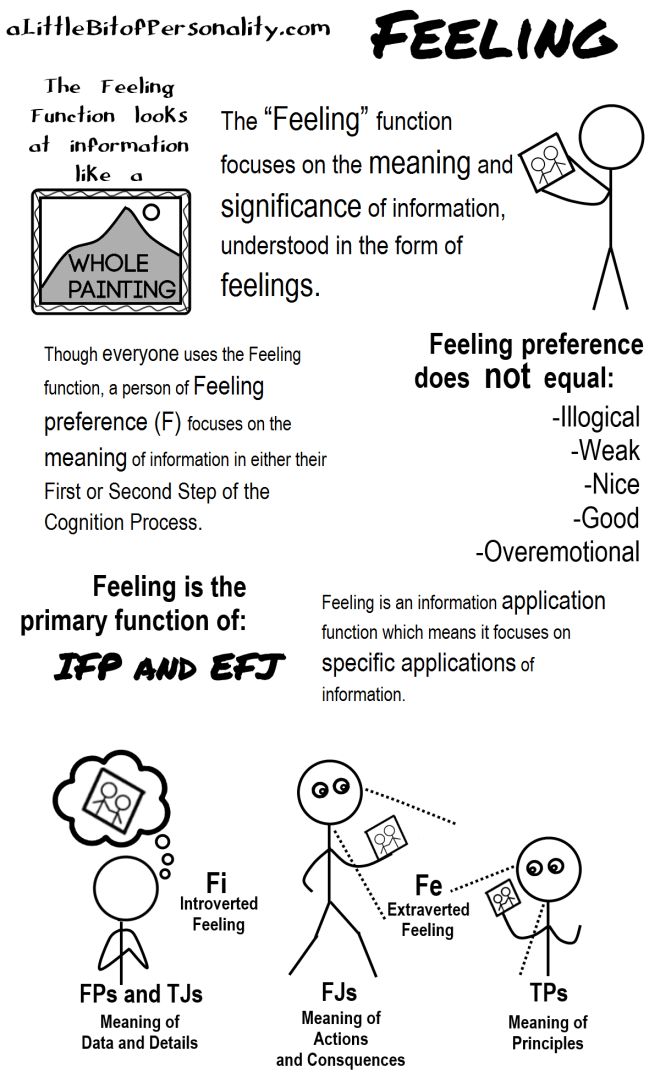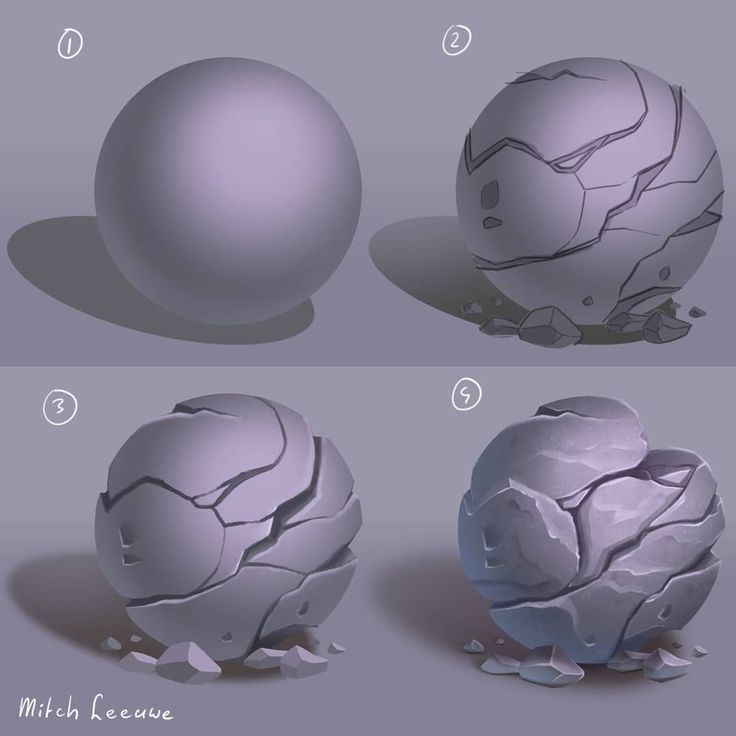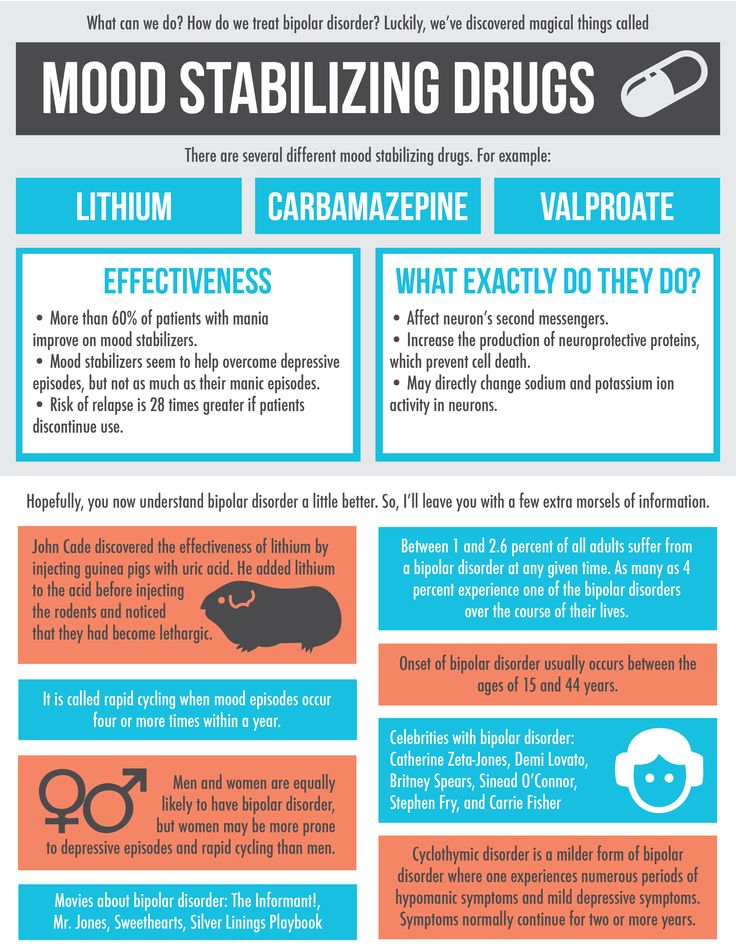Deal with envy
Five Ways to Ease Your Envy
Life is full of reminders of what we lack. There is always someone who is more successful, more talented, more attractive, or more advanced in meeting milestones than we are.
We encounter these people every day—in fact, they are often our friends, family members, and colleagues. Sometimes these encounters can leave us with a bitter taste in our mouths and a green glow in our eyes.
Envy is a state of desiring something that someone else possesses. It’s a vicious emotion that can crush self-esteem, inspire efforts to undermine others’ successes, or even cause people to lash out violently. It also just feels horrible.
Advertisement XMeet the Greater Good Toolkit
From the GGSC to your bookshelf: 30 science-backed tools for well-being.
So what can we do to disarm the green-eyed monster when it strikes? Here are five suggestions.
1. Acknowledge envy
Admitting that we are experiencing envy can be very threatening, because it means acknowledging our own weakness and insecurity.
The first clue that envy is lurking may be irrational feelings of hostility towards the object of our envy. Just the sight of them might make your skin crawl, even though they have done nothing wrong that you can put your finger on.
We are better off unravelling this form of vague resentment and identifying its green-colored root before it gets the better of us and damages our relationships. Paying attention to bodily cues may also be helpful, as certain forms of envy can trigger a “fight-or-flight” physiological response involving symptoms like increased heart rate, clenched muscles, and sweaty palms.
2. Recognize that pride is just the flip side of the envy coin
It is tempting—but generally unhelpful—to try to counteract envy with pride. “Sure, he has a nice car, but I’m better looking” is not going to get you very far. You might feel vindicated in the moment, but sooner or later someone is going to come along who has a nicer car than you and is better looking.
In other words, reassuring ourselves about our own enviable traits is unlikely to be sustainable, and it maintains the same unstable social comparison hierarchy where someone else needs to be put down in order for us to feel boosted up, and vice versa.
Instead of responding to the pain of envy with efforts to bolster your self-esteem, try self-compassion instead. Acknowledge that it is hard to see someone do well when you’re floundering, and remind yourself that you are very much not alone in your feelings of inadequacy. Even the most successful people suffer from self-doubt at times. Being imperfect is synonymous with being human.
3. Replace envy with compassion
Although envy seems almost like a compliment, it can be quite dehumanizing. It reduces the object of envy to something very narrow and masks the full picture of who they are and what their life is like.
Have you ever envied someone who seemed to to have the perfect life, only to find out later that they were in fact suffering in a very major way? These cases are more common than we might think—we just don’t have the opportunity to learn about someone’s difficulties when we’re mired in envy of their seemingly charmed life. (New research finds Facebook does not help things, by the way.)
(New research finds Facebook does not help things, by the way.)
It’s not that we should seek out others’ suffering, searching for chinks in their armor, but rather we should be open to seeing them in a fuller way, a way that will inevitably include both strengths and weaknesses, joys and sorrows. Doing so will allow us to notice things we may have otherwise overlooked—and as a result, be there for them when they are in need.
Appreciating a person in their fullness can also help us feel genuinely happy for their successes, a form of positive support called “capitalization” that has been shown to promote relationship well-being.
4. Let envy fuel self-improvement—when appropriate
When our envy is rooted in things we cannot change about ourselves, such as a difficult childhood, a traumatic event, or certain health conditions and disabilities, using envy to motivate self-improvement is more likely to dig us deeper into frustration and self-blame.
But sometimes envy alerts us to things that we want in life that are potentially attainable, if we’re willing to make certain changes.
For example, if you envy your productive colleague, you may find that you could be more productive yourself if you learned to manage your time better. You may even be able to get a few tips from him or her—upward social comparison can be a source not only of motivation but also of useful information.
5. Don’t forget to count your own blessings
As the saying goes, envy is counting the other fellow’s blessings instead of your own.
Counting our blessings isn’t the same as boosting our ego by reminding ourselves how we’re better than others, as in the nice car/good looks example above. It’s more about refocusing on what is really important in life, and on the sometimes intangible or invisible things we do possess—and that are less dependent on social comparisons, like a strong spirit, a diversity of life experiences, or just the simple fact of being alive.
The bottom line: Envy drains our happiness and saps our energy. It’s appreciation that reveals abundance in places where we might have failed to look.
Greater Good wants to know: Do you think this article will influence your opinions or behavior?
Submitting your rating
5 Ways to Deal With Envy So It Doesn’t Steal Your Happiness
“Happiness is found when you stop comparing yourself to other people.” ~Unknown
Throughout this year I’ve noticed myself feeling envious of other people. Particularly, I would feel envious of the famous people that I would see on television, read about in magazines, and follow on social media.
I wouldn’t even be envious of them for the things one might expect. It wasn’t because they were famous or wealthy. It wasn’t because they had millions of followers on social media. And it wasn’t because they were good looking.
Still, I would find myself feeling envious of an actress if she had a better personality than I did. I would feel bad about myself for not being as outgoing or bubbly or expressive. I would feel like I wasn’t as likeable for being quiet and an introvert.
I would feel envious of another celebrity for her ability to live a fun and impulsive life. I would see the way someone else could take risks and not seem to worry about the future. This made me feel like I was too cautious, and that it would keep me from having an exciting life.
I would feel envious of a musician for the level of success she achieved. This would be especially true if the singer was close to my age. I would feel as though I was wasting my life away, while other people my age already had careers.
Whenever I felt this way, I always wanted to try to understand these feelings. Not only did I want to understand them, I wanted to make them go away.
I didn’t want to feel envious of the people that I looked up to. I wanted to feel happy for them.
So, I would think about the person that made me feel this way and I would try to figure out what specifically made me feel envious. I would try to list my own strengths. I would try to see that this person wasn’t so different from me.
When that didn’t work, I would try to ignore the feelings. When that didn’t work, I just hoped these feelings would just fade over time. But I couldn’t seem to get the results I wanted.
It became clear to me that I would have to learn to embrace my feelings instead. One thing I’ve come to realize is that you can’t really control how you feel. Feelings are not inherently bad. But you need to look within to understand what is causing them.
By embracing my feelings, I realized that I would become envious of different people for similar reasons. I was envious of the person with a more outgoing personality because I wanted people to notice me.
When I thought I was envious of someone’s success, I realized I was envious jealous of the friends she made along the way.
Most of my envy came from a desire to make more friends and have more fun.
On this path toward understanding envy, I remembered a time when I was younger when I would always get envious of my friends when they won trophies.![]() I didn’t participate in sports, so there wasn’t any chance of me getting a trophy of my own.
I didn’t participate in sports, so there wasn’t any chance of me getting a trophy of my own.
As I’ve gotten older, I’ve come to realize that trophies and awards don’t matter all that much. They can certainly help a person to feel good about his or her hard work. But what really matters is the journey.
What matters is playing the sport, or playing the music, or performing in the plays, or solving the equations. What matters is growing and becoming better than you once were. What matters is doing something you love to do. The trophy is really just a symbol of the journey.
If a person had a trophy, I would feel like she was better than me. I didn’t have one, so I would feel worthless. I didn’t realize that it represented something deeper. I didn’t understand the hard work or the journey.
Now that I’m older, I realize that I don’t get envious of people who win trophies or awards anymore. Coming to this realization gave me hope. It made me realize that envy is something we can outgrow.
Still, time is not the only remedy for unwanted envy.
5 Tips For Overcoming Envy
1. Look beyond the surface.
If we feel envious of someone, we’re probably only seeing what’s on the surface.
It might seem like a person has easily acquired success, love, and quite frankly, happiness, while we struggle to achieve any one of those things. However, it’s important to remember that life is a journey.
If a person has success, there is a journey that led up to it. If a person has love, there is a journey that led up to it. These things don’t happen overnight. They take time. And you have to give yourself time to achieve them, too.
2. Take some time to unplug.
Social media makes it so easy for us to see the best parts of other people’s lives. It can make it seem like everyone else is happy and successful, while we are struggling to keep up.
If you feel envious of someone, take some time to just focus on youtself. Do things that will make you happy, like taking a nice bath or drinking tea or going for a bike ride. Take some time to focus on things that make you feel good about yourself.
Take some time to focus on things that make you feel good about yourself.
3. Look within.
If you are envious of someone, take some time to understand why specifically you are envious of him or her.
Maybe you’re envious of the person’s career or appearance or abilities. Why do you feel envious of that particular thing? Maybe it would bring you happiness. Maybe it would give you independence. It could be that the thing you really want can be achieved in a variety of different ways.
4. Know that your feelings do not make you a bad person.
When I’m envious of someone it can be frustrating, because I usually just want to be happy for that person’s success. So then, not only do I feel envious, but I also feel guilty.
We feel the things we do for a reason, and oftentimes we have to dig deep within to understand the true source of those feelings. Be patient with yourself.
5. Know that you are valuable.
If I feel envious of someone, it’s usually because I believe she is better than me. I’ll be envious of one aspect of that person’s life and think I am worthless because I don’t have that one thing.
I’ll be envious of one aspect of that person’s life and think I am worthless because I don’t have that one thing.
The truth is that we are all valuable. You may not have everything you want in your life right now, but that does not take away your worth. You don’t need to compare yourself to others because you are perfect the way you are.
About Ashley Lilly
Ashley Lilly is an aspiring author. She enjoys writing fiction, poetry, and plays. She believes that creative expression is especially helpful on the path to healing and growth. If you would like to read her blog, click over to https://ashleylillyblog.wordpress.com/.
See a typo or inaccuracy? Please contact us so we can fix it!
Psychologist's blog: how to get rid of the envious "toad"?
- Elena Savinova
- psychologist
The author of the photo, UNIAN
Caption before the photo,Is it possible to get rid of the envious "toad"?
Whatever they say, almost every one of us at least once in his life has experienced, or maybe constantly experiences, an unbearable "toad" syndrome - envy.
And although this emotion is not as acute as jealousy, resentment or guilt, but, unlike them, it is quite long and stable. Therefore, it can pretty much poison life. nine0011
Why do some people envy, while others do not, and how can one learn to calmly perceive someone else's success?
Spiritual hunger
The fact that people have been envious of each other for a long time is evidenced by the numbering of envy among the seven greatest sins by the biblical prophets.
The Latin word invidia - corresponding to this concept - is derived from the verb invidere, which means "to look against" or, probably, disapprovingly, hostilely. The ancient Romans used this word when it came to antipathy, hatred, weak will, jealousy, rivalry. Therefore, these feelings were already known in those days. nine0011
By the way, envy is often confused with alleged jealousy for someone's better life. Although researchers believe that jealousy as such comes from love, and we are talking about at least three people. Whereas envy arises between two. But is it any easier?
Although researchers believe that jealousy as such comes from love, and we are talking about at least three people. Whereas envy arises between two. But is it any easier?
The jealous people were romanticized by writers and playwrights - for they allegedly endure torments because of love (although more likely - because of wounded pride). Whereas the envious were simply despised as weak, incapable, greedy for someone else's. The Spanish philosopher and writer Miguel de Unamuno said in one of his works, "envy is a thousand times worse than hunger, because it is spiritual hunger." nine0011
Everything seems to be correct, but at the same time not quite. Let's not rush to condemn ourselves or classify some of our feelings as "bad". After all, from the fact that we "forbid" ourselves some kind of emotion, it does not disappear, but is only driven into the subconscious. It is much more difficult to understand something previously tabooed.
Learned helplessness
Photo credit, BBC World Service
Photo caption,The tendency to constantly compare yourself to others can be instilled in childhood
Pass the podokast
Podkast
ShO TS BULO
GOLD ISTORIA TIZHNYA, Yaku explain our journalism
VIPSISKS
, if a person has a sense of non -completeness in a person’s success. , and luck is the impression of his own deprivation, which means that he himself is empty, unhappy and he seems to have nothing to live with. So about spiritual hunger, Unamuno was partly right. nine0011
, and luck is the impression of his own deprivation, which means that he himself is empty, unhappy and he seems to have nothing to live with. So about spiritual hunger, Unamuno was partly right. nine0011
Remember the happy periods of your life, did you care about anyone? Why, then, when we are dissatisfied with ourselves, we "transfer arrows" to others?
There are several reasons. For example, a heightened sense of justice leads us to believe that someone is lucky solely at our expense. This causes "righteous" anger. But no one promised us that life would consist only of pleasant things. By the way, such supporters of universal justice usually successfully mask their own inactivity by the fact that they are chronically unlucky. nine0011
Since, in their opinion, happiness is a constant value, it means that someone else gets it at that time. Envious people almost always have an external locus of control. That is, they see the reasons for their failures in someone or something, but not in themselves. And instead of asking myself if I did everything in my power, they willingly “appoint” someone, in their opinion, more successful, to be guilty of their own failures.
And instead of asking myself if I did everything in my power, they willingly “appoint” someone, in their opinion, more successful, to be guilty of their own failures.
The next reason is the tendency to compare oneself with others, combined with an inferiority complex. The roots of this are in childhood, when parents, apparently trying to develop in us a desire for healthy competition, also compared their children with the best intentions with those who ate better, dressed faster, memorized poems. The comparison was, of course, not in our favor, and therefore the effect was exactly the opposite. That is, we remember well that we can compare ourselves with someone, guided by the criterion of "better or worse." Moreover, "worse" has always been about us. nine0011
And although these identifications are only in our imagination, the realization is imprinted for life: no matter what we do, there will always be someone else who will be better (more obedient, stronger, smarter). Psychologists call this state of learned helplessness.
Psychologists call this state of learned helplessness.
But comparing ourselves with others is inadequate, just because we feel ourselves around the clock. But we see someone for a few minutes, and then - only the front side of success.
Someone became a genius, someone became a boss...
The author of the photo, ap
Photo caption,Buying new boots by a friend can cause more envy than buying another yacht by an oligarch - because the friend is socially closer a person who causes envy to look confident or have a high level of wealth. Maybe you should not envy, but regret?
And would you agree, for example, to give up your favorite business, not to see your family, to get up at dawn to buy an expensive car or a large apartment? Do you need it? As it was said in a poem popular in my student days: "Someone has become a genius, someone has become a boss, do not regret that you did not get their troubles.![]() " nine0011
" nine0011
Envious people are also people with a high level of expectations, too demanding of themselves and others, dismissive. It is difficult for them to understand that they are working so hard to achieve something, and some, in their opinion, "upstart" gets everything easily and without tension. Offended by someone else's success and for those who are accustomed to control everything. Like this? I did not give consent to someone's happiness!
It has been established that the closer people are in social and material status, the more likely they are to envy each other. That is, we will be more "annoyed" that a friend bought beautiful boots than that some oligarch bought another yacht. nine0011
According to research, people are most envious from the age of 18 to 27, but this unpleasant feeling of those who are over 60 lets go. what you have yourself.
Comparing oneself with others sometimes encourages self-improvement - this is the constructive side of envy, its "white" hypostasis, so to speak.![]() But no matter what this "toad" is - white or green - it still irritates, gives rise to unpleasant sensations and a bad mood. nine0011
But no matter what this "toad" is - white or green - it still irritates, gives rise to unpleasant sensations and a bad mood. nine0011
With all the diversity, all those subject to envy have a common feature - this is an orientation towards external success, a desire to appear beautiful instead of being beautiful.
What to do with these envy: HoldYou recommendations
What to do with these envy: HoldYou recommendationsAuthorization
New user Already registered
nine0102 Forgot your password?Contact
We will call you back as soon as possible!
Forgot your password?
Your new password must be different from the previous one
Create a new password
Your new password must be different from the previous one
Registration
New user Already registered
I confirm that I am over 18 years old, I have read the terms of service and privacy policy
Number confirmation
You have been sent an SMS with a confirmation code
Didn't receive the code?
resendSelect type, date and time of consultation
nine0011Yana Valiakhmetova
Psychologist-consultant in the CBT method
Experience: 4 years.
Approaches: cognitive behavioral therapy (CBT).
Problems: problems in the family, with a partner or children, anxiety, stress, depression, feelings of resentment, anger, compassion, loneliness, inferiority, panic and obsessive thoughts.
Lilia Malashko
Psychologist-sexologist, family psychologist
Experience: 15 years old.
Approaches: psychoanalysis, CBT, emotionally focused and emotionally imaginative therapy.
Problems: low self-esteem, couple relationships, dissatisfaction with life, sexual issues, stress, anxiety, parent-child relationships.
Mikhail Dikiy
Psychologist, psychotherapist, coach
Experience: 12 years.
Approaches: positive psychotherapy, acceptance and responsibility therapy, EMDR, cognitive image therapy, coaching. nine0011
Problems: help to get rid of anxiety, fears, low self-esteem, improve relationships with loved ones/at work, survive loss, heal traumas.
Yulia Reutenko
Family psychologist
Experience: 3 years.
Approaches: regression therapy, systemic family psychotherapy using transgenerational and systemic approaches.
Problems: childhood traumas of adults, codependent relationships, self-devaluation, negative relationships with parents. nine0011
Ekaterina Simoroz
Psychologist, Gestalt therapist, specialist in child-parent relationships.
Experience: 5 years.
Approaches: gestalt therapy, art techniques, mind maps, emotional education therapy.
Problems: emotional dependence, phobias, obsessive thoughts, chronic fatigue, procrastination, lack of meaning in life, emotional instability, identity issues.
Anzhelika Skidan
Psychologist, family psychologist, CBT consultant, transactional analysis psychologist
Experience: 9 years.
Approaches: transactional analysis, cognitive behavioral therapy.
Problems: I work with depression, apathy, anxiety, low self-esteem, relationship problems, pain of loss and other personal problems.
Gleb Fedorov
Psychologist-consultant
Experience: 5 years
Approaches: cognitive behavioral therapy, gestalt therapy and schema therapy.
Problems: personality conflicts, negative beliefs, and mild to moderate depressive and anxiety disorders. Search for harmony and personal growth.
Angela Dolzhenko.
Psychologist, art therapist, body therapist
Experience: 23 years.
Approaches: art therapy, body-oriented therapy, work with metaphorical associative maps. nine0011
Problems: self-doubt, fears, anxiety, conflicts, search for a life's work, crises in family relationships, support of the process and consequences of divorce.
Natalia Tikhonova
Psychologist, family psychologist
Experience: 11 years.
Approaches: family therapy, psychoanalysis, transactional analysis.
Problems: personality problems, burnout, depression, chronic fatigue, couple relationships, divorce, problems with success, motivation, eating disorders and more. nine0011
Natalia Zdorovtsova
Psychologist, family psychologist, sexologist
Experience: 10 years.
Approaches: psychodynamic (psychoanalytically oriented) psychotherapy.
Problems: individual and interpersonal difficulties (loneliness, repetitive scenarios, frequent conflicts, loss of trust, betrayal, dissatisfaction in the sexual sphere, etc.).
Valentina Melkovskaya
Practicing psychologist, family counselor, gestalt therapist
Experience: 8 years.
Approaches: gestalt therapy, art therapy, family systems therapy.
Problems: low self-esteem, childhood mental trauma, emotionally dependent relationships, separation from parents, emotional burnout, depression, loneliness, stressful conditions, fear of death.
Olga Podvalnaya
Certified psychologist, sleep expert
Experience: 10 years.
Approaches: client-centered psychotherapy, cognitive behavioral therapy.
Problems: sleep problems, domestic and abusive relationships, relationship problems, anxiety, apathy, well versed in the unique context that LGBTQ+ people face.
Ludmila Sarapina
Family psychologist, child and adolescent psychologist, coach
Experience: 20 years.
Approaches: positive psychotherapy, body-oriented therapy, art therapy, children's play therapy, trauma therapy. nine0011
nine0011
Problems: anxiety, nervous breakdowns, relationship problems with children, partners, family, depression, traumatic experiences, self-acceptance.
Margarita Zaichenko
Psychologist - psychotherapist, family and crisis psychologist
Experience: 14 years.
Approaches: positive psychotherapy, CBT, emotional image therapy, Jungian analysis, gestalt therapy, psychoanalytic therapy.
Problems: setting and achieving goals, fears, panic attacks, feelings of anxiety, conflicts, dissatisfaction with the quality and brightness of life. nine0011
Ivan Gurtovoy
Psychotherapist, family psychologist
Experience: 11 years
Approaches: CBT, art therapy, symbol drama and multimodal approach.
Problems: violence and pressure, negative and obsessive thoughts, PA, loss of a loved one, PTSD, eating disorders, anxiety and depression, apathy, guilt, relationship problems.
Olga Morozova.
Practicing psychologist
Experience: 10 years
Approaches: analytical psychology, art therapy, transactional analysis, body orientation therapy.
Problems: crises, PTSD, gender-based violence (including domestic violence). I will be useful in working with anxiety, depression, burnout and self-esteem.
Svetlana Prudnik
Practical adolescent psychologist, family psychologist
Experience: 20 years. nine0011
Approaches: consultant in positive psychotherapy, gestalt approach, home therapy.
Problems: fears, doubts, lack of understanding of oneself and one's own desires, problems in relationships, problems in the behavior of adolescents.
Yulia Petrunyak
CBT consultant, sexology consultant
Experience: 3 years.
Approaches: CBT, NLP, art therapy, psychodrama.
Issues: relationship problems, abuse, divorce, loneliness, emotional dependency, betrayal, jealousy, emotional burnout, self-esteem and self-realization, guilt and shame, fears, crises.
Ilona Yakovleva
Family psychologist, gestalt therapist, sexologist
Experience: 8 years
Approaches: gestalt therapy, family systemic therapy, art therapy.
Problems: depression, difficulties in relationships with partner, parents, children, self-esteem, problems with childbearing and family creation, divorce and loss, problems in the intimate part of relationships. nine0011
Anna Bulatova
Psychologist, Gestalt therapist
Experience: 10 years.
Approaches: gestalt therapy, transactional analysis, MAC, art therapy, logotherapy.
Problems: conflicts in relationships, self-esteem, crises, childhood traumas, age-related crises, separation, self-doubt, adaptation to life in another country.
Maria Kisilevich
CBT consultant, coach, child psychologist
Experience: 15 years.
Approaches: CBT, art therapy, child psychology.
Problems: Problems in relationships with children, issues of upbringing and development of children, the child's adaptation period (kindergarten, school), anxiety, fears, negative beliefs, panic attacks, enuresis, anger.
Ludmila Dmitrenko
Psychosomatologist, family psychologist, counseling psychologist.
Experience: 5 years.
Sets: personal counseling, transactional analysis, psychosomatics, cognitive approach.
Problems: family conflicts, depression, anxiety, negative emotions, low self-esteem, abusive relationships, interaction with the external and internal world.
Svetlana Nazirova
Psychologist, gestalt consultant
Experience: 3 years.
Approaches: gestalt therapy, coaching, art therapy, MAC.
Issues: crises in relationships (betrayal, anxiety, vulnerability, jealousy, control, panic attacks), problems of female self-manifestation, search for a resource, problems of self-esteem and emotions.
Daria Zozulya
Systemic family psychologist, child/adolescent psychologist
Experience: 8 years.
Approaches: gestalt therapy, psychoanalysis, psychodrama, art therapy.
Problems: parenting scenarios in children, conflicts with teenagers, problems in teaching a child, bullying, anxiety, panic attacks, loneliness, working with fears, relationship problems. nine0011
Anna Katerusha
Military psychologist, family and adolescent psychologist
Experience: 10 years
Approaches: gestalt therapy, projective methods, military psychology.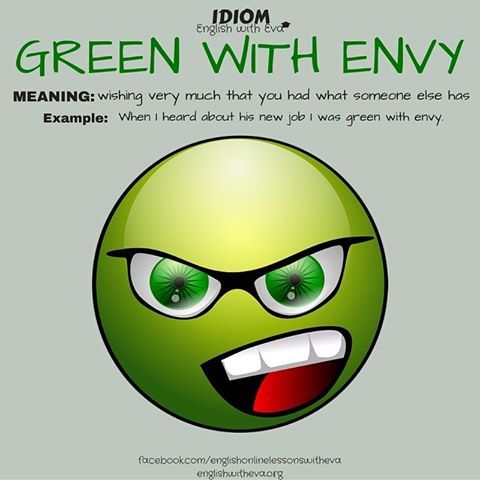
Problems: adaptation of military personnel taking part in combat operations, PTSD in adults and children,
difficulties in family relationships, anxiety, depression.
Alexey Vydysh
Family and corporate psychologist, mediator, supervisor, trainer, facilitator
Experience: 10 years.
Approaches: client-centered approach, CPR, existential analysis, systems approach, psychodrama.
Problems: personal growth and self-realization, professional activity, negotiation and conflicts, family relations, existential crises.
Alina Sazonova
Psychotherapist
Experience: 6 years.
Approaches: gestalt therapy, art therapy, integrative approach, NLP. nine0011
Problems: dissatisfaction with life, uncertainty and indecision, low self-esteem, loneliness, dislike of one's job and lifestyle, self-realization, problems in romantic relationships.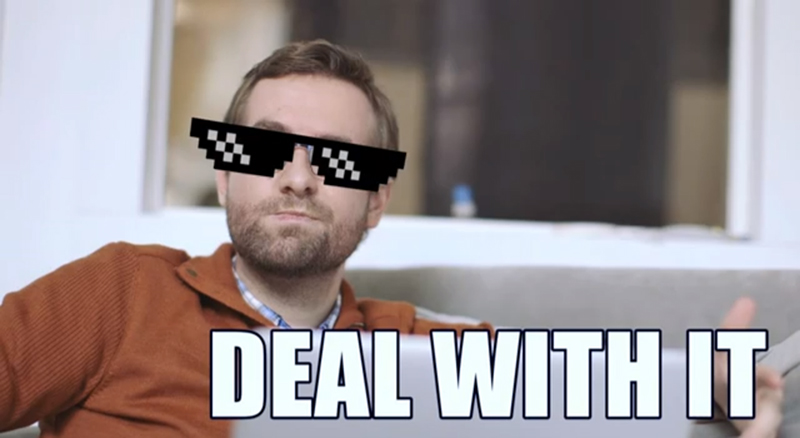
Ekaterina Astakhova
Family psychologist, adolescent psychologist
Experience: 7 years.
Approaches: psychodynamics, work with children/adolescents and families, art therapy.
Problems: child-parent relationships, conflicts, career guidance, self-esteem, anxiety, psychosomatics, self-awareness. nine0011
Olesya Moroz
Psychologist-psychotherapist, sexologist, gestalt consultant
Experience: 13 years.
Approaches: CBT, symbol drama, art therapy, gestalt approach.
Problems: sexological problems, work with traumatic experiences, depression, apathy, self-damaging behavior, self-discovery.
Karina Dudareva
Art therapist, child and family psychologist
Experience: 4 years
Approaches: art therapy, body therapy, prize therapy, CBT, child psychology.
Problems: children's behavior, fears, uncertainty, communication difficulties, neuroses, motivation. In adults: low self-esteem, dwelling on crises, negative beliefs, developmental trauma.
Viktoriya Antonova
Trauma therapist, CBT consultant
Experience: 15 years
Approaches: transactional analysis, CETA therapy (cognitive-behavioral therapy approach). nine0011
Problems: panic attacks, stress, burnout, loss of meaning, self-perception, fatherhood and relationship with a child, relationship breakdown, childhood trauma, obsessive thoughts and memories.
Elena Dulova
Psychologist, family psychologist
Experience: 15 years.
Approaches: CBT, gestalt therapy, art therapy.
Problems: emotional instability, child-parent relationships, crises, losses, anxiety, fears, relationships in the family, in a couple, fatherhood, conflicts with others, internal conflicts. nine0011
nine0011
Irina Filenko
Child, adolescent, family psychologist
Experience: 9 years.
Approaches: family therapy, art therapy, methods and techniques based on the strengths of the client.
Problems: relationship with a child, conflict situations in the family, adolescent crisis, alienation and aggression of adolescents, resource for fatherhood, gender characteristics of growth.
Olga Basista
Psychologist-sexologist, gestalt therapist
Experience : 9 years.
Approaches: gestalt therapy, positive psychotherapy, sexology.
Problems: sexuality, psychological or emotional dependence, anger, resentment, loneliness, shame of yourself and your feelings, self-esteem, anxiety, fears, panic attacks, problems in relationships, search for motivation.
Olga Beleva
Psychologist, family therapist
Experience: 4 years
Approaches: Systemic family therapy, client-centered therapy, cognitive behavioral therapy.
Problems: anxiety, emotional outbursts for loved ones, emotional depression or apathy, relationships in a couple / with children / with parents, problems of loneliness, leaving relationships.
Tatyana Sevastyanova
Psychologist, family psychotherapist
Experience: 20 years.
Approaches: gestalt therapy, family systems therapy, art therapy. nine0011
Problems: crises, co-dependent relationships, conflicts, grief and loss, anxiety and depression, low self-esteem and self-doubt.
Olga Pribylskaya
Psychologist-consultant
Experience: 7 years.
Approaches: catatim-immaginative psychotherapy (symboldrama) and art therapy.
Problems: Difficulties in couple relationships, family, finding oneself, self-esteem problems, loss, fears and phobias. Formation of life plans, career and goal setting. nine0011
nine0011
Yulia Dontsova
Analytical psychologist
Experience: 4 years.
Approaches: analytical direction, integrative approach.
Problems: co-dependent relationships, living through the stages of change (liberation, divorce, relocation), parent-child relationships, communication in a couple, anxiety, fears, internal imbalance.
Yulia Yakunina
Family counselor, adolescent psychologist
Experience: 10 years.
Approaches: positive psychotherapy, fairy tale therapy, meditative technique.
Problems: situations of conflict (including financial aspects), infidelity, divorce, fear of death, anger, resentment, guilt, loneliness, LGBT problems.
Roksoliana Vovk
KPT - consultant, gestalt consultant
Experience: 5 years.
Approaches: cognitive behavioral and gestalt therapy. nine0011
nine0011
Problems: anxiety, depression, panic, lack of confidence, fear of interaction with the world, difficulties in relationships with loved ones, traumatic experience, difficulty in making a decision, self-doubt.
Irina Pikushchenko
Systemic family therapist
Experience: 15 years.
Approaches: family therapy, gestalt approach, constellation.
Problems: family and relationships in it, intrapersonal conflicts and problems in communication with the world, choosing a profession and finding one's own path, relations between a man and a woman. nine0011
Irina Saltykova
Practical psychologist
Experience: 15 years.
Approaches: psychodiagnostics, psychocorrection, psychoeducation, development, consultations for parents and children.
Problems: organization of space development for a "special" child, support for parents of a child with special needs, work with children and adolescents with behavioral problems, depression, fears
Valentina Shost
Psychologist, consultant in the method of positive psychotherapy
Experience: 5 years.
Approaches: psychoanalysis, coaching, symbol drama and positive psychotherapy.
Problems: aero- and other phobias, internal disharmony, relationships with others, anxiety, search for oneself, self-realization, fear of publicity, negative experiences.
Amina Karimova
Psychologist-consultant
Experience: 10 years
Approaches: analytical psychology, art therapy, transactional analysis, body orientation therapy.
Problems: crises, PTSD, gender-based violence (including domestic violence). I will be useful in working with anxiety, depression, burnout and self-esteem.
Maria Yanchuk
Psychologist-consultant, family psychologist
Experience: 8 years.
Approaches: transactional analysis, psychological analysis method, neuropsychological techniques, art therapy. nine0011
Problems: constructive communication, parent-child problems, increased/lowered emotionality, choice problems, self-doubt, LGBTQ+ problems.
Maria Sobko
Psychologist-consultant
Experience: 5 years.
Approaches: family systems therapy.
Problems : difficulties in relationships with a partner, family and, above all, with oneself, inner support, anxiety, search for work-life balance, work with attitudes and life scenario, emotional burnout. nine0011
Please select a date
Select the type of consultationSessionSubscribe
Enroll
Forgot your password?
Your new password must be different from the previous one
Number confirmation
You have been sent an SMS with a confirmation code
Didn't receive the code?
resend03/15/2021
Envy is a feeling that is familiar to every person. At least once in a lifetime, we have devalued our efforts, while admiring the successes and achievements of others. Envy is white and black, a person decides what to feel. nine0011
At least once in a lifetime, we have devalued our efforts, while admiring the successes and achievements of others. Envy is white and black, a person decides what to feel. nine0011
It is important to remember that negative emotions first of all have a destructive effect on the one who experiences them. Your colleague or friend is unlikely to feel the power of your envy, but it will reflect on you. We rarely realize that the causes of many diseases and ailments must be sought in ourselves. What we broadcast to the world is reflected in us. Is envy always a negative and destructive feeling? Or can it be a motivator, a catalyst for personal growth? Let's figure it out.
Envy is needed to understand oneself
At first glance, the statement seems strange and absurd. But really, envy helps to better know and understand yourself, your desires and goals. Envy, as an unproductive emotion, in itself does not cause any harm. You can draw an analogy with weapons. It is not evil, it all depends on who owns it and how it uses it. The situation is the same with envy.
It is not evil, it all depends on who owns it and how it uses it. The situation is the same with envy.
Our response to presented stimuli depends on the level of emotional intelligence. From how much we can understand what is happening to us and the people around us. How to influence the situation and respond to the appearance of negative emotions. Everyone has their own reasons for envy. For example, someone from the environment has something that is not available to you: a car, an apartment, popularity, etc. The absence of this causes vulnerability, we experience discomfort. In this case, a person has two ways: to do everything to get what he wants and to reconsider the goals, to understand why this is important. Often people are not psychologically aware of what they need, so they want what others have. nine0011
It may be that envy is a painful longing for something. An obsessive idea that completely takes over the mind. Such a desire is associated with one's own set standards and the desire for superiority.
If used correctly, envy can become an impulse and help you examine your needs and desires more closely.
Envy is unproductive, reflexive and selfish
Envy is not an essential part of our culture. It can be assumed that it originates from ancient times. But as we look at biblical and other examples, we take our modern judgments about this feeling and transfer them to prehistoric times. Not taking into account the fact that in the past this situation could have had other interpretations. For example, the philosopher Oleg Aronson believes that “white envy” does not exist, it is only a way to reflect. Compare it with the ancient tradition of competition. nine0011
Envy is a selfish, unproductive emotion. In a society that is not focused on material goods, social superiority and political power, envy will be inappropriate.
Signs of envy and triggers
an envious person can be determined by several phrases and signs:
• False Joy
With your success, an envious person will first begin to scatter in congratulations and compliifications. Words and reactions will seem sincere, but anger and aggression are hidden behind them. nine0011
Words and reactions will seem sincere, but anger and aggression are hidden behind them. nine0011
• The phrase “I don't need anything”
Envious people often try on the image of a victim. They are characterized by depreciation of themselves and comparison with others. If you hear such a phrase, know that in front of you is a person who is envious and, moreover, seeks to manipulate.
• "It's nothing special"
When someone from the environment achieves the best result, while the person himself is experiencing difficulties, it is difficult for him to survive someone else's success. He experiences emotional instability. Therefore, by all means he is trying to devalue your efforts and merits. nine0011
• “Serves him right”
An envious person will rejoice in someone else's failure and failure, not realizing that mistakes are part of growth.
• “Lucky for him”
Instead of making every effort and succeed, the envious person will spend energy and internal resources on negative emotions, discussions and gossip.![]() Envy is a powerful emotional trigger and difficult to recognize.
Envy is a powerful emotional trigger and difficult to recognize.
How to use envy to your advantage? nine0018
To understand yourself and use envy to your advantage, use the Three Questions exercise:
• Why do I envy?
Sometimes we may not be aware of the reasons for envy. To direct it in the right direction, it is important to understand what caused it. For example, if envy is related to the success and material well-being of others, think about how to get it. Change jobs, find an additional source of income, etc.
• What do people do to get what they want? nine0018
Don't expect to be given step-by-step "how to succeed" instructions. But you can take someone else's ideas as a basis and refine them.
• What can I do to get what I want?
When there is a goal, it is much easier to move and develop. Write down specific steps on how you can achieve the desired result.
See also
At home among strangers: psychological adaptation in a foreign country nine0099
The war aggressively launched by Russia against Ukraine has forced many people to leave their homes and go abroad.
